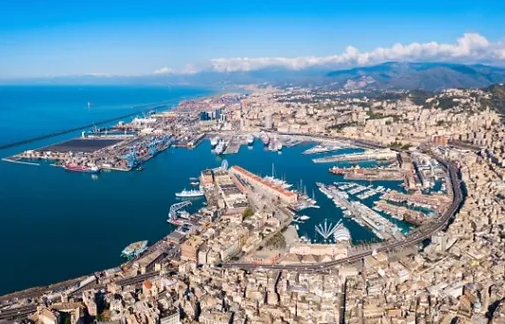
Photo: Fratelli Cosulich
In a bid to pave the way toward a more sustainable shipping industry, Fratelli Cosulich together with Hapag-Lloyd have made significant strides in recent years.
Following the introduction of the International Maritime Organization’s sulfur cap in 2020, Fratelli Cosulich began its physical supplier setup in Genoa, providing very-low sulfur fuel oil (VLSFO) and low-sulfur marine gasoil (LSMGO) sourced from Iplom, a local refinery situated close to the port.
The shipping industry is set to face an increase in biofuel demand due to the implementation of the EU Emissions Trading System by 2024.
This market-based approach aims to provide economic incentives for reducing the emissions of pollutants.
In response to this, Fratelli Cosulich, in partnership with Iplom, has begun producing and supplying its own marine biofuel blend to reduce the greenhouse-gas (GHG) intensity of marine fuels and meet the stringent EU requirements.
Earlier this year, Fratelli Cosulich became the first supplier in Italy and one of the first in Europe to deliver “Bio VLSFO.”
Hapag-Lloyd, which is continuously working on reducing its carbon footprint on its journey to becoming climate neutral by 2045, has provided its full support and has indicated one of its vessels to run this test.
The delivery happened in collaboration with Genoa-based barge company Ottavio Novella.
The container vessel burned the fuel, which is made up of 10 percent bio component sourced from an ISCC-certified Italian biorefinery, with no issue.
The marine biofuel will enable vessel owners and charterers to reduce GHG emissions by 10 percent and lower the cost of ETS coverage.
Fratelli Cosulich said it is taking further steps to position itself as a leader in sustainable fuel solutions.
In addition to its new biofuel options, the company has invested in new LNG bunker vessels and is studying the use of methanol as marine fuel.
“These efforts are a testament to Fratelli Cosulich’s commitment to reducing GHG emissions and promoting a more sustainable future for the shipping industry,” the company stated. “By expanding its range of ecofriendly-fuel options, the company sets an example for others in the industry.”